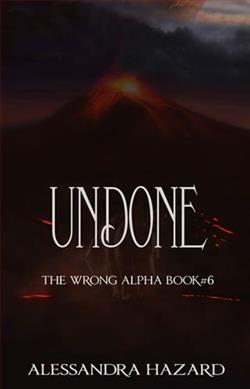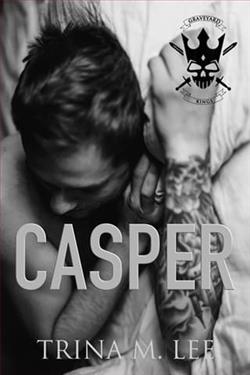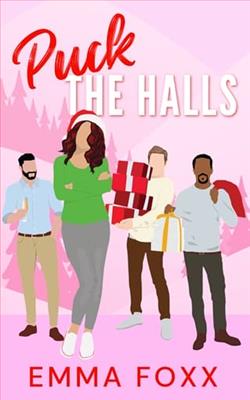Page 10 of The Music Demon
“Turned out that was what you’d call an understatement. She wrote a lotta songs. Later on, I figured that’s likely how she’s gettin’ by. She never worked, never married. At least not that I know of. No family.” He paused. “That I know of. Just lives the nostalgia. It’s cool in a way, but also sad in a way. You know?”
“She’s your mentor,” Lyric offered.
“Sure. You could say that. She must’ve negotiated some kinda slick deal to get money from the machine. Lots of songwriters get super ripped off and never get a dime for music that makes millions.”
“Did you ever ask her about that?”
“Nah. My grandmother would say that’d be rude. Don’t ever ask a rancher how many cattle he has. Don’t ever ask somebody how much their new sofa cost. We weren’t high up in Wimberley society, but we have manners.”
Lyric didn’t smile outwardly, but found it charming that the kid thought the little town of Wimberley, population three thousand, had a social caste that could be called ‘society’.
“What’s her name?”
“Cassidy Power. She goes by Cass.”
“Nice name.”
Gray nodded and stopped for a swig of beer. “I don’t really remember a time when I didn’t like the sounds better than what came after. Commercial music is just glorified karaoke.”
Lyric cocked his head and nodded thoughtfully. “Where’d you learn to play?”
“Same thing. Cass gave me one of her guitars and showed me a few chords when I was nine. She’s not Santana, you know? But she knew enough to get me started. Picked up the rest from YouTube.”
“You learned to play by video?”
“Yeah.” He shrugged. “It’s free.”
“Have you ever thought about being a fulltime performer?”
Gray laughed. “Yeah. About a thousand times a day. But how’d that work? Anybody interested in my music is dead or dying. Unless you know a way to put me near a startup band in the sixties, I’m destined to be a goin’-nowhere-novelty.”
“You have some originals?”
“Yeah. Not that anybody’s ever gonna hear ‘em. Even playin’ out like this.” He gestured toward the gathering with his chin. “They just want to hear music they already know. Over and over.”
“What if there was a way to put you near a startup band in the sixties? What year would you want to be twenty-three?”
“1967”
“Why?”
A half laugh, half huff erupted from Gray. “Why? You don’t know much about music, do you?”
Lyric took that in stride and gave nothing away. “Maybe I want to see how muchyouknow.”
“Okay. I’ll play. The Doors. The Who. Jefferson Airplane. The Animals. Jimi Hendrix. Rolling Stones.”
“What about the Beatles?” Gray answered with a derisive snort. “Pink Floyd? The Moody Blues?” Gray shook his head. “Monkees?” That earned Lyric a truly dirty look. “You know experts say Classic Rock began withSgt. Pepper’s Lonely Hearts Club Band.”
“Experts? What exactly is a music expert? It’s like… What do you call it?” He snapped his fingers. “An oxymoron. Right? Look. Here’s the deal. If the listener never once thinks about sex… At all. In any way. It’s not rock.
“The Brits have a gift for poetry and musical innovation. Great music. If you ask me,Days of Future PassedandTommywere groundbreaking. More thanSgt. Pepper. But if it doesn’t have an underlying foundation of African beat, it’s not rock and roll. The Brits weren’t steeped in soul. So most didn’t get that. Some did. Nobody understands better than the Stones. ‘Brown Sugar’ is the result of putting the cultures in a bottle and shaking it up.”
“I liked your performance of ’Crystal Ship’. But it’s not exactly a toe tapper.”
“No. Not a toe tapper. It’s hypnotic, not barn burning. People don’t have to be jumping and shaking to be thinking about sex. They were swaying with their eyes closed.”
“I’m starting to get the picture. Tell me your influences?”















